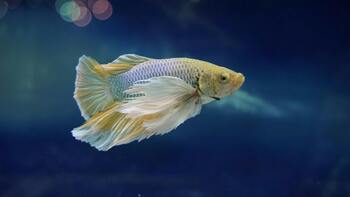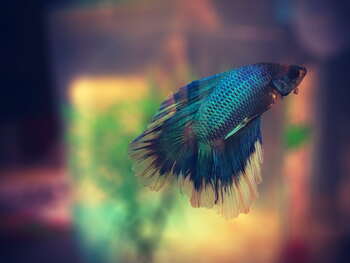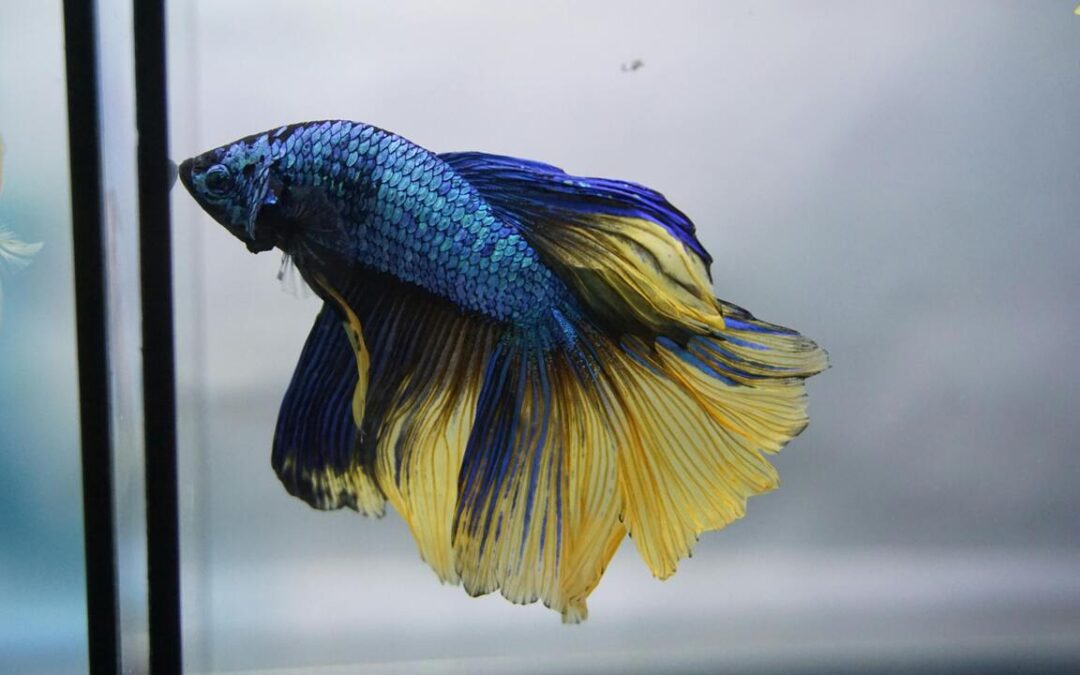If you’ve ever walked into a pet store, chances are you’ve seen betta fish sitting in small cups or decorative bowls without a filter in sight. This might make you think, “Hey, bettas must not need a filter, right?”
Well… yes and no.
While betta fish can technically survive without a filter, that doesn’t mean it’s ideal—or even particularly healthy—for them in the long run. Think of it like living in a house with no ventilation or plumbing. Sure, you could make it work, but it would take a lot more effort and constant upkeep to keep things livable.
In this guide, we’ll explain the real reasons why a filter is usually the better choice, and what to keep in mind if you’re still considering going filterless. Let’s dive in.
Why Filters Are a Good Idea for Bettas
1. Filters Help Keep the Water Clean and Safe
 Betta fish are messy little creatures. Between uneaten food, fish waste, and natural plant debris, their tank water can get dirty pretty fast—especially in smaller tanks. Without a filter, ammonia (a toxic compound released from waste) can build up quickly, poisoning the water.
Betta fish are messy little creatures. Between uneaten food, fish waste, and natural plant debris, their tank water can get dirty pretty fast—especially in smaller tanks. Without a filter, ammonia (a toxic compound released from waste) can build up quickly, poisoning the water.
Even a tiny amount of ammonia is dangerous. It can cause:
- Burned gills
- Lethargy or gasping at the surface
- Fin rot
- Long-term stress, which weakens the immune system
A filter helps circulate the water and physically remove some of the waste. More importantly, it provides a home for beneficial bacteria that eat that toxic ammonia and turn it into less harmful substances through what’s called the nitrogen cycle.
2. They Support the Nitrogen Cycle (Which Your Betta Needs!)
Let’s talk about those friendly bacteria for a second. When you first set up a tank, the filter media (sponge, ceramic rings, etc.) slowly gets colonized by bacteria that convert:
- Ammonia → Nitrite → Nitrate
Ammonia and nitrite are highly toxic to fish. Nitrates, while still not great, are much safer and can be removed through regular water changes. Without a filter, there’s limited surface area for these helpful bacteria to thrive, making it harder to maintain a stable, healthy tank.
In short: the filter is your tank’s biological “engine.”
So… Can a Betta Live Without a Filter?
Yes, in some situations. But it comes with big responsibilities.
1. Heavily Planted Nano Tanks Can Work Without Filters
Some advanced hobbyists and breeders keep bettas in filterless tanks, often small (under 5 gallons) and filled with fast-growing live plants like:
- Java fern
- Anubias
- Hornwort
- Water sprite
These plants help soak up waste and release oxygen. In this kind of setup, you’re mimicking a more natural ecosystem—but it has to be balanced just right. You’ll still need to test the water frequently and be on top of your maintenance.
2. Frequent Water Changes Are Non-Negotiable
If you’re not using a filter, get ready to roll up your sleeves. Without one, toxins can build up very quickly, even in a 1- or 2-gallon bowl. Most filterless setups require:
- Daily or every-other-day water changes
- Careful temperature matching when changing water
- Monitoring ammonia levels constantly
Miss a water change, and your fish could suffer. And yes, it’s stressful—for both of you.
Choosing the Right Filter for Your Betta
Bettas come from calm, slow-moving waters in Thailand, so they don’t do well with strong currents. A powerful filter can stress them out, push them around the tank, or even damage their delicate fins.
That’s why choosing the right filter is crucial.
Sponge Filters
- Best choice for bettas
- Gentle bubbles and soft flow
- Great biological filtration
- Affordable and easy to clean
Sponge filters run using a small air pump and are ideal for tanks under 10 gallons.
Hang-On-Back (HOB) Filters with Flow Control
- Good for 5-gallon tanks or larger
- Look for models with adjustable flow or add a pre-filter sponge on the intake
- Can be baffled with sponge or filter floss to reduce the current
Avoid filters that stir up the entire tank like a washing machine—bettas prefer calm, quiet waters.
The Bigger Picture: A Filter Makes Life Easier
Let’s be honest—for most betta keepers (especially beginners), a filtered tank is just simpler and safer.
With a filter, you get:
- More stable water conditions
- Fewer water changes (once a week instead of every day)
- Less risk of sudden ammonia spikes
- A better environment for your betta’s long-term health
In other words, a filter gives you more wiggle room and peace of mind.
But My Betta Is in a Bowl Without a Filter—Is That Okay?
It’s a common sight, but here’s the truth: tiny bowls are not ideal for bettas. They:
- Don’t hold heat well
- Accumulate toxins faster
- Have no room for enrichment, hiding spots, or swimming
If your betta is in a bowl, consider upgrading to at least a 5-gallon tank with a gentle filter. It’s a small change that makes a huge difference in your fish’s quality of life.
FAQs About Bettas and Filters
❓ Can I use a regular filter for my betta?
Yes, but choose one with adjustable flow. Sponge filters or low-flow HOB filters are ideal. Avoid strong power filters that churn the water.

❓ How often do I clean a filter?
About every 3–4 weeks. Rinse the filter sponge in old tank water, not tap water, to preserve beneficial bacteria.
❓ Do baby bettas (fry) need filters?
Fry need very gentle filtration—sponge filters are perfect. They also need stable, clean water more than adult bettas.
❓ Can I go without a filter if I use plants?
Possibly, but only with lots of healthy live plants and diligent water care. Even then, a filter is still safer.
❓ What size tank should I use for a betta with a filter?
Ideally, 5 gallons or more. It gives your betta space to swim and helps stabilize water parameters. Smaller tanks require more frequent upkeep.
Final Thoughts: So, Do Bettas Need a Filter?
If you take one thing from this article, let it be this:
No, bettas don’t need a filter to survive. But they absolutely benefit from having one.
A filter makes it easier to create a safe, stable, and happy environment for your fish. It takes some of the daily maintenance load off your shoulders, too.
If you choose to go filterless, know what you’re signing up for: frequent water changes, careful monitoring, and a delicate balance of plants and patience.
But if you want your betta to thrive—not just get by—a gentle filter is one of the best investments you can make.






